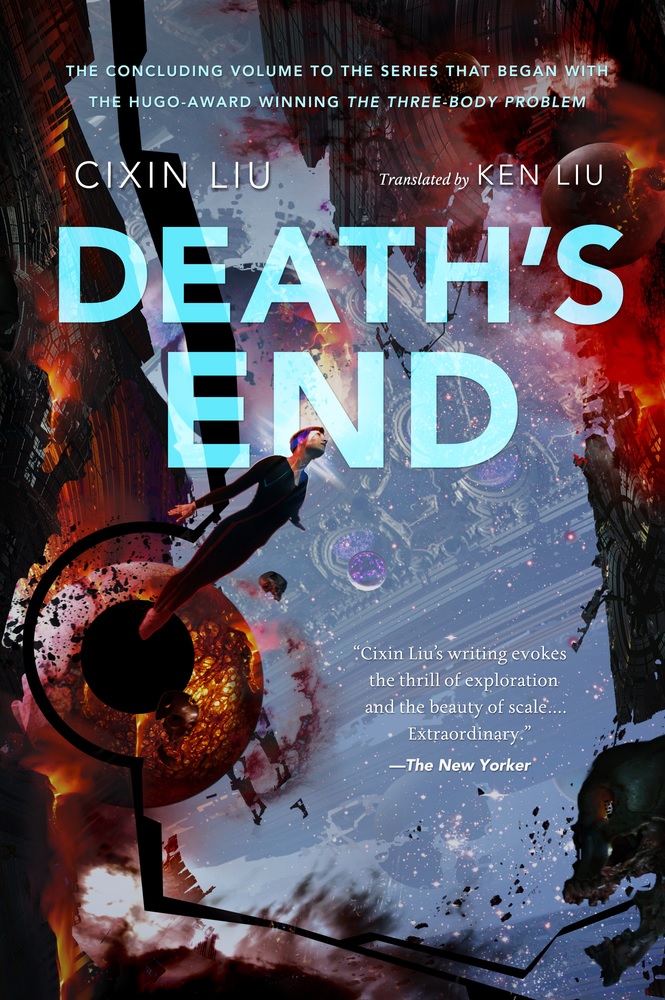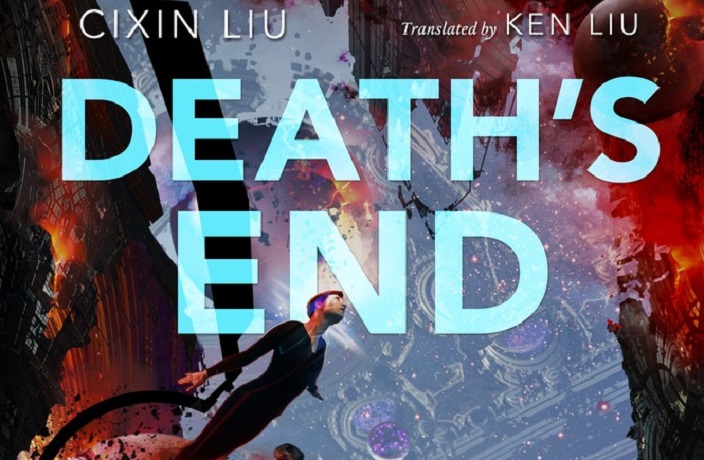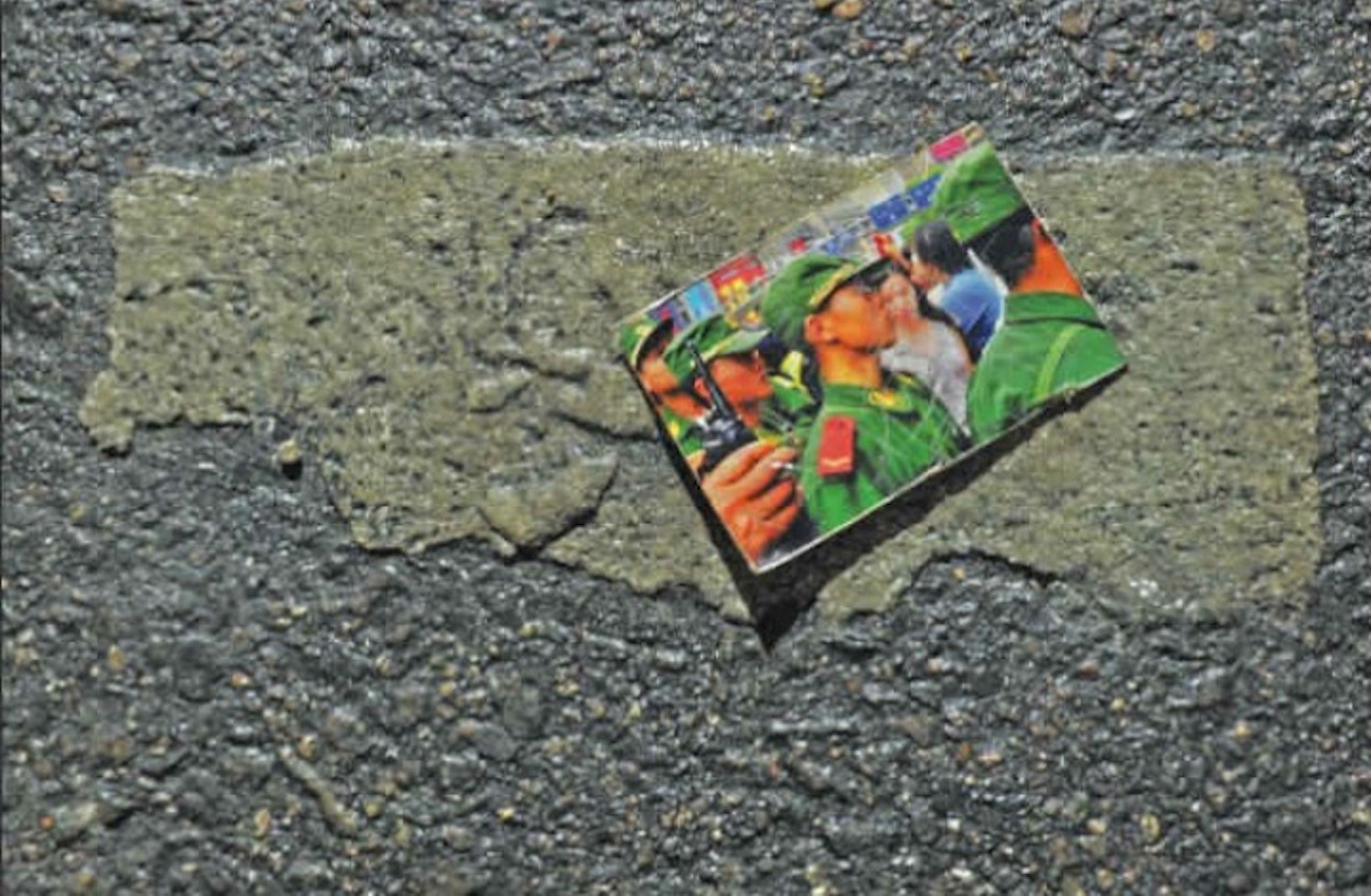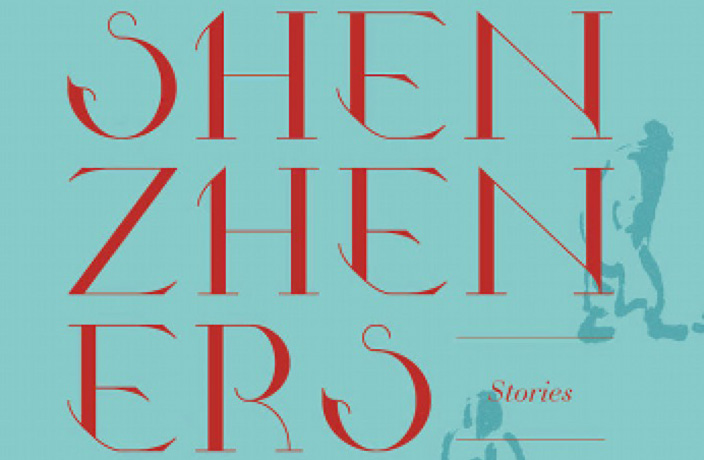Is Liu Cixin China’s worst great writer? China’s best terrible writer?
In Death’s End, the finale of his epic Three Body trilogy, his qualities and faults are as obvious as ever. This is amazing big picture science fiction, with a narrative covering millions of years, mind-blowing ideas and remarkably clear descriptions of difficult concepts like multi-dimensionality.
 Liu goes big from the start, and only gets bigger – we move from first contact to the danger of alien invasion to peril for the whole solar system and perhaps even the entire universe. It’s thought provoking in the way the best hard sci-fi should be.
Liu goes big from the start, and only gets bigger – we move from first contact to the danger of alien invasion to peril for the whole solar system and perhaps even the entire universe. It’s thought provoking in the way the best hard sci-fi should be.
But the writing... yikes, the writing. Liu’s characters certainly do not get over two dimensions, and the way he writes women is teeth-grindingly awful. Dialogue is stilted at best. Not a single person behaves in a psychologically plausible way. There’s a deeply problematic ‘noble savage’ portrayal of a wise Australian Aboriginal. Aliens think in exactly the same way as humans. And so on.
We can’t put this all on Liu; he has been very badly served by his editors. Each book (the trilogy comes in at a good 2,000 pages) could be half its length. Liu’s strength is his ideas, and he should have steered away from his hapless attempts at love stories or insights into the human condition.
There’s no reason for his uniquely bad metaphors and similes to get past the editing process. (“It was as unexpected to see these things in him as it was to see water in fire.”)
So, anyway. In The Three-Body Problem (the first Chinese book to win the Hugo Award, in 2015), mankind discovers an invading fleet en route from the unstable Trisoloran solar system. Given the distance involved, this leaves hundreds of years to prepare; but the invaders use multi-dimensional particles to spy on everything humans say and do, and to limit the ability to make scientific breakthroughs.
The sequel, The Dark Forest, follows Earth’s attempts to nonetheless stop the invasion; one prominent method entails socalled ‘Wallfacers’ given unlimited resources to prepare defenses, without revealing their plans to anybody, in order to keep them secret from the Trisolorans as well.
The most disdained of them all, Luo Ji, saves the day by secretly setting up a massive communication system, based on the ‘dark forest’ theory – if Earth is attached, he will trigger gravitational waves to act as a beacon revealing the location of both our solar system and that of the invaders, because in the massive dark forest that is the universe, there is always a bigger, badder predator ready to pounce. It’s mutually assured destruction, and it works.
So Death’s End starts on a hopeful note, with the Trisoloran fleet having backed off, and communication and mutual understanding growing. This is all based on the fact that the aliens are in no doubt that Luo Ji, now known as the ‘Swordholder’, will not hesitate to set off the beacon if they try any funny business.
But Luo Ji is getting old, and it is time to pick a new Swordholder. Young, idealistic Cheng Xin – who is less a character than a deeply annoying ‘you had one job’ meme – is one candidate; another is ruthless American Thomas Wade.
It’s unintentionally funny that Luo Ji has spent the last 50 years deep underground literally staring at a wall with a determined look on his face – there’s no particular reason Earth couldn’t have just put together an automated system.
Still, it’s a stirring premise, and when things go wrong the ensuing global threat leads to chaos, as everyone on Earth is forced to relocate to Australia or face extermination.
Meanwhile, there are still Earth spaceships huge distances away making new discoveries and finding evidence of even more powerful foes; and the preserved brain of the rather hapless Yun Tianming has been fired off in a special craft to cover huge distances and attempt to make alien contact.
So we move from about 200 years in our future, to about 2,000, to much, much further. The bigger things get, the better the book is, and the closing sections are really brain-stretching.
All three books have excellent endings, and Death’s End has an extremely satisfying, thrilling and melancholic climax. It’s rare for science fiction on this scale to be so carefully thought through; even the best writers tend to cheat, to depend on coincidence or deus ex machina last-minute rescues. We were totally gripped.
These books have been huge bestsellers in China (this one came out in Chinese in 2010) and a movie of The Three-Body Problem is coming out next year. Film production problems are foreboding, but it will probably be great fun.
Liu Cixin is doing amazing work, and deserves his success. We just wish somebody would edit him.
Liu Cixin: Death’s End (Tor) will be available on Amazon from Sep 20. For more, check out our reviews of The Three-Body Problem and The Dark Forest.
For more book reviews, click here.






















0 User Comments